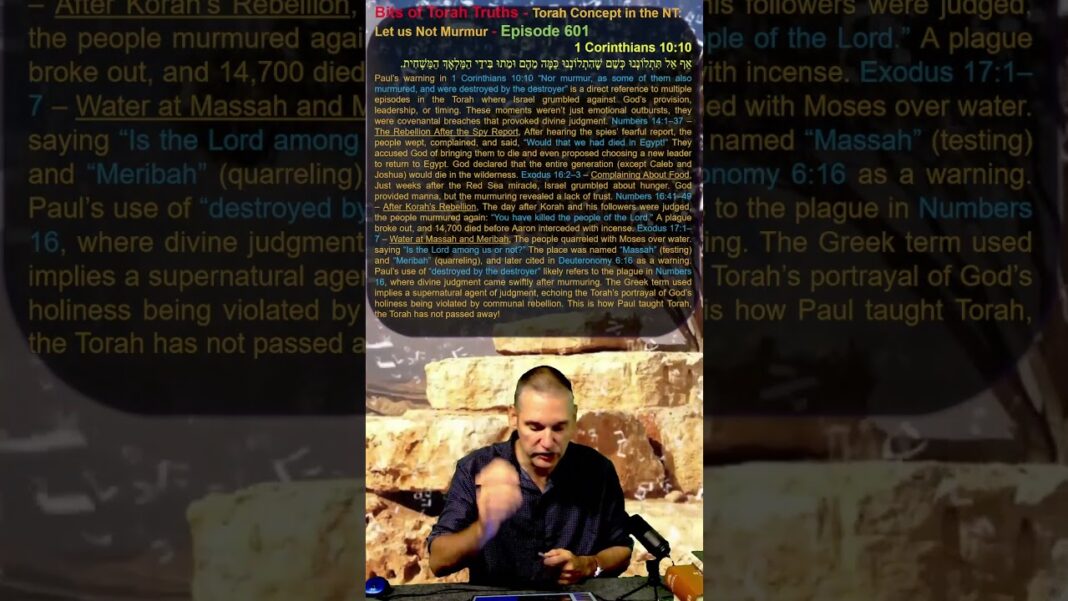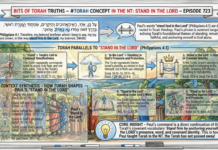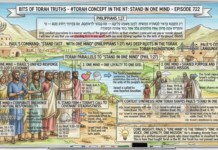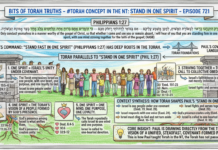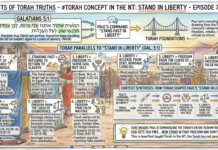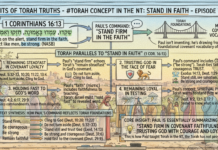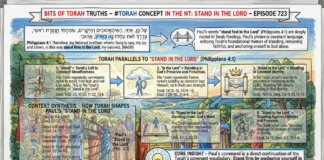Bits of Torah Truths – Torah Concept in the NT: Let us Not Murmur – Episode 601
1 Corinthians 10:10
אַף אַל תִּתְלוֹנְנוּ כְּשֵׁם שֶׁהִתְלוֹנְנוּ כַּמָּה מֵהֶם וּמֵתוּ בִּידֵי הַמַּלְאָךְ הַמַּשְׁחִית.
#torah#torahwisdom#torahtruth#torahforlife#torah4you#torahtruth
1 Corinthians 10:10
10:10 Nor grumble, as some of them did, and were destroyed by the destroyer. (NASB)
https://www.matsati.com/index.php/category/bits-of-torah-truths/
Paul’s warning in 1 Corinthians 10:10 “Nor murmur, as some of them also murmured, and were destroyed by the destroyer” is a direct reference to multiple episodes in the Torah where Israel grumbled against God’s provision, leadership, or timing. These moments weren’t just emotional outbursts; they were covenantal breaches that provoked divine judgment. Numbers 14:1–37 – The Rebellion After the Spy Report, after hearing the spies’ fearful report, the people wept, complained, and said, “Would that we had died in Egypt!” They accused God of bringing them to die and even proposed choosing a new leader to return to Egypt. God declared that the entire generation (except Caleb and Joshua) would die in the wilderness. Exodus 16:2–3 – Complaining About Food, just weeks after the Red Sea miracle, Israel grumbled about hunger. God provided manna, but the murmuring revealed a lack of trust. Numbers 16:41–49 – After Korah’s Rebellion, the day after Korah and his followers were judged, the people murmured again: “You have killed the people of the Lord.” A plague broke out, and 14,700 died before Aaron interceded with incense. Exodus 17:1–7 – Water at Massah and Meribah, The people quarreled with Moses over water. saying “Is the Lord among us or not?” The place was named “Massah” (testing) and “Meribah” (quarreling) and later cited in Deuteronomy 6:16 as a warning. Paul’s use of “destroyed by the destroyer” likely refers to the plague in Numbers 16, where divine judgment came swiftly after murmuring. The Greek term used implies a supernatural agent of judgment, echoing the Torah’s portrayal of God’s holiness being violated by communal rebellion. This is how Paul taught Torah, the Torah has not passed away!
